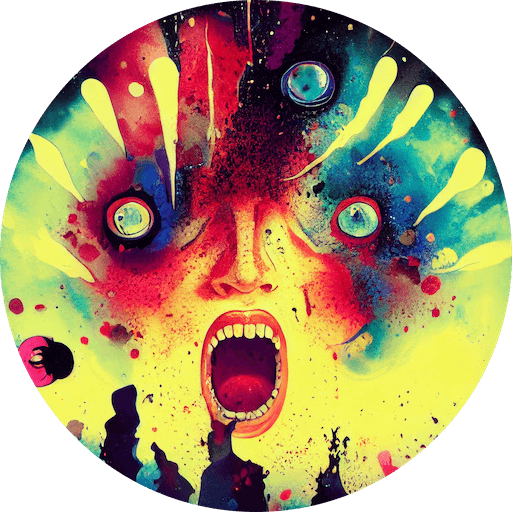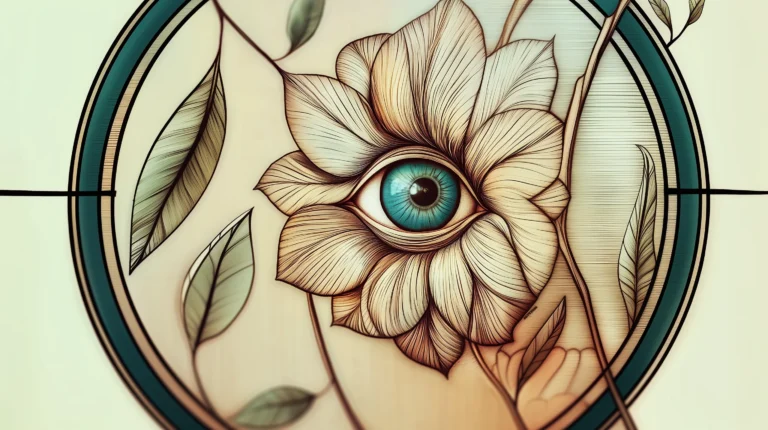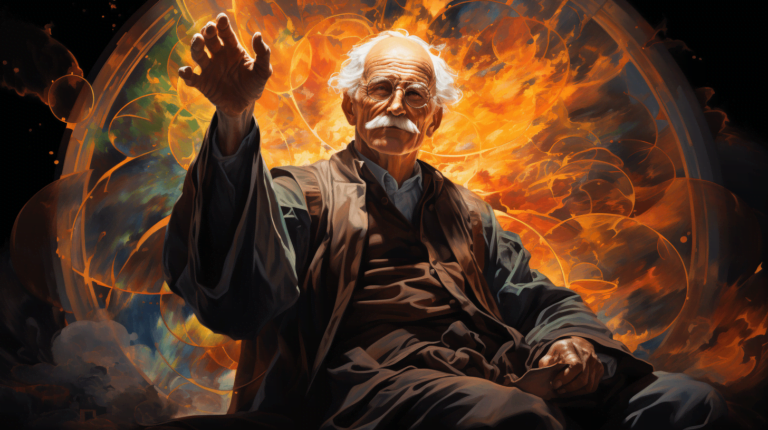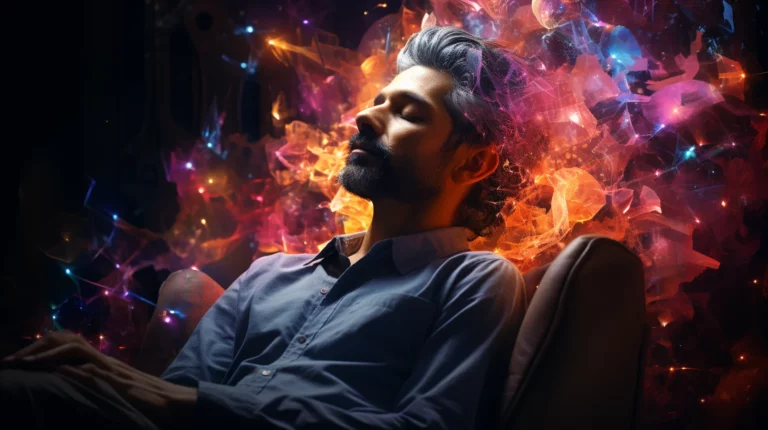Eros and Thanatos: A Deep Dive into Freud’s Dualistic Theory of Human Drives
Eros and Thanatos are terms originating from Greek mythology, borrowed by Sigmund Freud, the father of psychoanalysis, to label the two primary conflicting drives that he believed govern all human behavior. Eros, named after the Greek god of love, represents the life instinct, while Thanatos, named after the Greek personification of death, signifies the death instinct. The concept of these two conflicting drives is an integral part of Freud’s psychoanalytic theory.
Understanding Eros
Eros, also known as the life instinct, is the driving force associated with love, sexuality, creativity, cooperation, and survival instincts. It encompasses the basic urge to live, resulting in actions and behaviors that ensure the preservation and continuity of life.
The energy behind this life instinct, which Freud referred to as ‘libido,’ involves the need to form bonds with others, reproduce, and generally engage in life-sustaining activities. It drives the pursuit of pleasure, particularly in relationships and productivity, reflecting the love of life.
An example of Eros in action can be seen in our day-to-day life. For instance, our natural instinct to eat, drink, and find shelter when needed reflects Eros. On a broader level, the drive to establish meaningful relationships, achieve personal goals, and contribute to society also demonstrates the life instinct.
Understanding Thanatos
Thanatos, or the death instinct, operates in stark contrast to Eros. It refers to the unconscious desire for death and destruction, a pull toward aggression, chaos, and an ultimate return to an inorganic, non-living state. Freud hypothesized that this drive emerges from the organism’s desire to eliminate tension and return to a state of calm, ultimately seeking to return to the inanimate state from which life arose.
To better understand Thanatos, consider activities that harm one’s health, such as smoking or excessive consumption of alcohol. These actions could be seen as subtle manifestations of the death instinct. On a broader societal scale, wars, violence, and self-destructive behaviors reflect the death instinct’s dominance.
The Balance between Eros and Thanatos
Freud proposed that Eros and Thanatos continuously wrestle within the human psyche, and our behaviors represent the outcome of this internal struggle. He argued that a balance between the two drives is necessary for optimal mental health. When the equilibrium between these forces is disrupted, it can potentially lead to problems ranging from psychological distress to destructive behavior.
A healthy balance might be someone who actively seeks relationships, engages in creative activities (Eros), but also enjoys the thrill of an extreme sport (controlled manifestation of Thanatos). Conversely, an imbalance could be seen in a person entirely absorbed in self-destructive behavior (overwhelming influence of Thanatos) or someone who is excessively focused on life-affirming activities, disregarding any risks or challenges (overbearing influence of Eros).
Critiques and Applications
Despite its compelling nature, Freud’s theory of Eros and Thanatos has faced considerable criticism. Some argue that the concept of a ‘death instinct’ is overly pessimistic and lacks empirical support. Others contend that his theories are too subjective and not quantifiable, hence not scientifically verifiable.
Nonetheless, this dualistic theory has found applications in various fields. For instance, in literary analysis, characters’ motivations can often be examined through the lens of Eros and Thanatos. Similarly, it can provide a theoretical framework in social sciences to interpret societal patterns and behaviors.
Harnessing Eros and Thanatos

Eros and Thanatos, the dualistic forces coined by Sigmund Freud, embody the constructive (life) and destructive (death) drives within us. Their interplay forms a core part of human behavior and motivation. This section offers a practical guide on how we can harness these fundamental drives for self-development and personal growth.
Understanding Your Life Instinct (Eros)
The first step to utilizing these forces is recognizing their influence. Eros, the life instinct, signifies our capacity for love, creativity, and personal fulfillment. When you nurture your relationships, engage in creative activities, or set goals for your career or personal life, you are acting on Eros.
To harness this force:
1. Practice Self-care: Look after your physical and mental well-being. Healthy diet, regular exercise, adequate sleep, and mindfulness practices are essential aspects of self-care. They ensure that your body and mind are in the optimal state for personal growth.
2. Foster Relationships: Engage in meaningful relationships. Connect deeply with your friends, family, and colleagues. Participating in social activities and nurturing your connections can enhance your emotional well-being and contribute to personal growth.
3. Embrace Creativity: Engage in activities that stimulate your creativity. Paint, write, play an instrument, or even decorate your home. Creative pursuits boost self-expression and stimulate personal development.
4. Set and Pursue Goals: Identify what you want to achieve in life and work towards it. Goals give you a direction and can bring a sense of purpose and satisfaction.
Understanding Your Death Instinct (Thanatos)
Thanatos, or the death instinct, is typically associated with destructive behaviors such as aggression and self-harm. However, in a controlled and healthy manner, this instinct can be channeled into resilience, courage, and a greater understanding of one’s limitations.
To leverage Thanatos for growth:
1. Challenge Yourself: Undertake activities that push you out of your comfort zone. Running a marathon, learning a new language, or trying a new hobby can make you more resilient and adaptable.
2. Embrace Risk: Calculated risks can lead to substantial rewards. For instance, starting a new business venture or relocating for a job can be risky but can also provide significant personal and professional growth.
3. Understand Your Limitations: Acknowledge that you are not invincible. Recognizing your limitations can help you focus on what’s truly important and drive you to improve where necessary.
Balancing Eros and Thanatos
Maintaining a balance between Eros and Thanatos is key to self-development. An excess of Eros could lead to complacency, while an overemphasis on Thanatos could result in reckless behaviors.
Recognizing the manifestation of Eros and Thanatos in your life is the first step towards achieving balance. Here are a few techniques:
1. Mindfulness and Self-reflection: Mindfulness helps you stay present and aware of your feelings and thoughts. Regular self-reflection can help you identify when Eros or Thanatos is dominating your behavior. For instance, if you find yourself often engaging in risk-taking activities, it might be a sign of an overly active Thanatos, and you might need to engage more with activities that stimulate Eros.
2. Healthy Outlets for Instincts: Finding healthy outlets for both instincts can ensure that neither one dominates. For instance, physical activities like martial arts or competitive sports can serve as an outlet for the aggressive side of Thanatos, while social volunteering or mentoring can satisfy Eros’ need for connection and contribution.
3. Therapeutic Support: If you feel overwhelmed, professional support can be beneficial. Psychotherapists or counselors can help identify which of your behaviors are driven by Eros or Thanatos and provide strategies to maintain balance.
4. Setting Personal Boundaries: Know your limits to protect your mental and emotional well-being. You might love your job (Eros), but working 70 hours a week could lead to burnout. Establish a work-life balance to keep Eros and Thanatos in check.
Conclusion
Freud’s concepts of Eros and Thanatos, while often studied in the abstract, can offer practical insights for personal growth. They underscore the complexity of human drives, illustrating our capacity for both creation and destruction, love and aggression. By acknowledging and understanding these intrinsic drives, we can harness their power to foster creativity, resilience, and purpose in our lives. The key is to strike a balance, leveraging the best of what both instincts have to offer, to facilitate a fulfilling journey of self-development.







